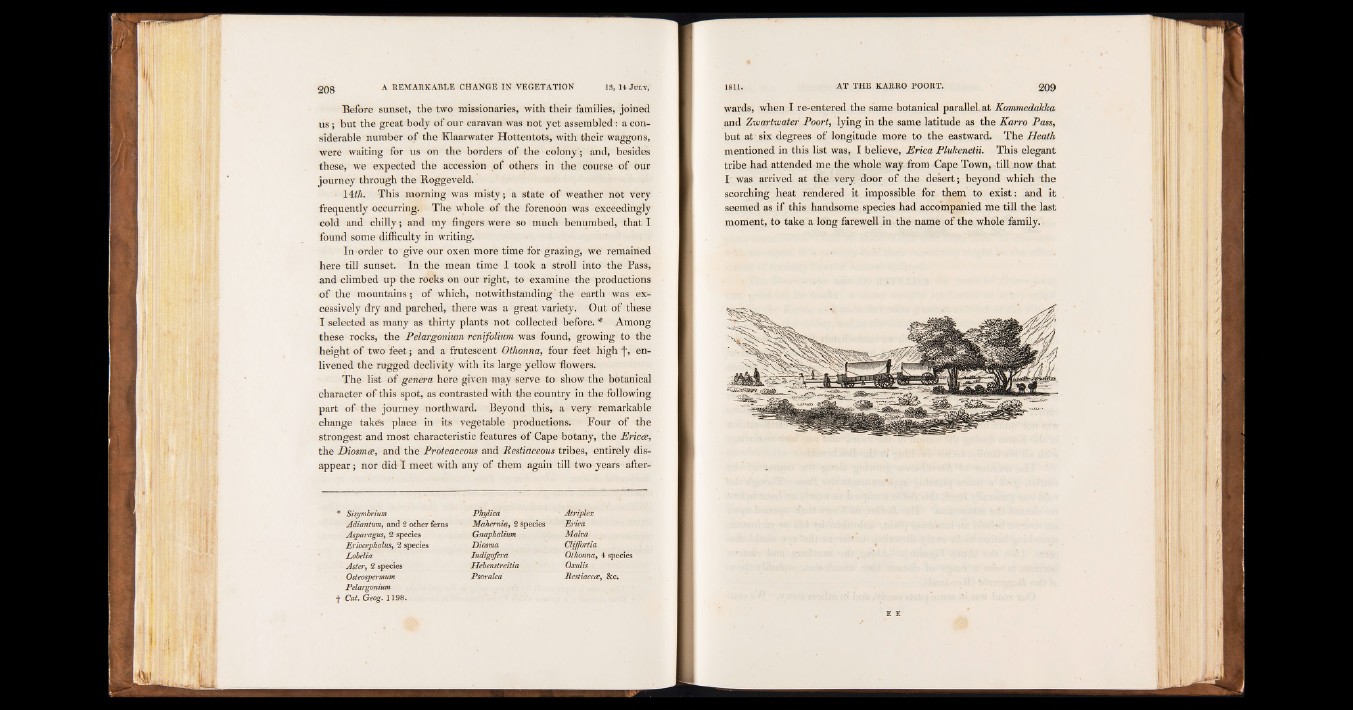
Before sunset, the two missionaries, with their families, joined
us ; but the great body of our caravan was not yet assembled: a considerable
number of the Klaarwater Hottentots, with their waggons,
were waiting for us on the borders of the colony ; and, besides
these, we expected the accession of others in the course of our
journey through the Roggeveld.
14£A. This morning was misty; a state of weather not very
frequently occurring. The whole of the forenoon was exceedingly
cold and chilly; and my fingers were so much benumbed, that I
found some difficulty in writing.
In order to give our oxen more time for grazing, we remained
here till sunset. In the mean time I took a stroll into the Pass,
and climbed up the rocks on our right, to examine the productions
of the mountains 5 of which, notwithstanding the earth was excessively
dry and parched, there was a great variety. Out of these
I selected as many as thirty plants not collected before. * Among
these rocks, the Pelargonium renifolium was found, growing to the
height of two feet; and a frutescent Othonna, four feet high f , enlivened
the rugged declivity with its large yellow flowers.
The list of genera here given may serve to show the botanical
character of this spot, as contrasted with the country in the following
part of the journey northward. Beyond this, a very remarkable
change take's place in its vegetable productions. Four of the
strongest and most characteristic features of Cape botany, the Ericce,
the Diosmce, and the Proteaceous and Restiaceous tribes, entirely disappear
; nor did I meet with any of them again till two years afterSisymbrium
Adiantum, and 2 other ferns
Asparagus^ 2 species
Eriocephalus, 2 species
Lobelia
■ Aster, 2 species
Pelargonium
f Cat. Geog. 1198.
Phylica
Mahemia, 2 Species
Gnaphalium
Diosma
Indigo/era
Hebenstreitia
Psoraleà
Atriplex
Erica
Malva
Cliffbrtia
Othonna, 4 species
Oxalis
Restiacece. See.
wards, when I re-entered the same botanical parallel, at Kommedakka
and Zwartwater Poort, lying in the same latitude as the Karro Pass,
but at six degrees of longitude more to the eastward. The Heath
mentioned in this list was, I believe, Erica Plukenetii. This elegant
tribe had attended me the whole way from Cape Town, till now that
I was arrived at the very door of the desert; beyond which the
scorching heat rendered it impossible for them to exist: and it
seemed as if this handsome species had accompanied me till the last
moment, to take a long farewell in the name of the whole family.